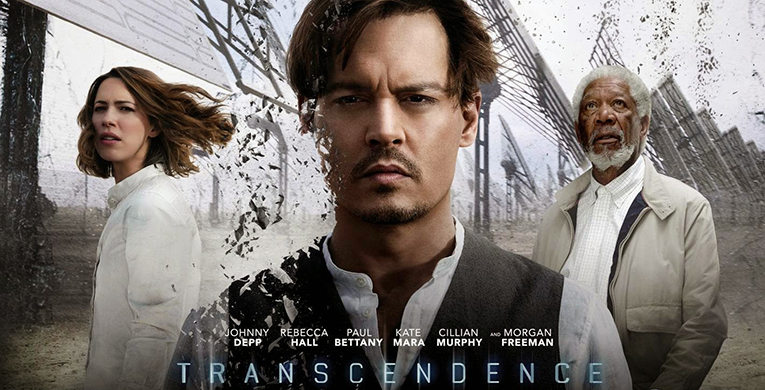
As anyone who has ever been excited by a concept only to be let down by the final product knows, few things are as disappointing as unrealized potential. “Transcendence,” the directorial debut from long-time Christopher Nolan cinematographer Wally Pfister, is a prime example of the disappointment stemming from missed opportunities.
The film looks like a winner on paper, having Pfister’s visual prowess combined with a solid cast and the interesting, albeit overdone, sci-fi concept of artificial intelligence. With all of this promise, it is unfortunate to see that a weak plot, poor pacing and flat characters mar “Transcendence,” leaving a finished product that is an underwhelming and dull husk of the film that was promised.
The film follows scientist Will Caster and his wife Evelyn, as Will is working on a project that will encapsulate all of the efforts of mankind into a technological singularity that he calls transcendence. After a presentation in order to raise funds for the project, a member of the anti-technology group Revolutionary Independence From Technology (RIFT) shoots Will. He survives the attempt on his life, but it is discovered that the bullet was laced with radioactive material and he is dying of radiation poisoning.
With Will on the brink of death, Evelyn decides to use his brain as the model for the artificial intelligence. After his conscious is uploaded, Will begins amassing power and working on nanotechnologies that will eliminate human suffering and clean the world. Meanwhile, RIFT is attempting to counteract him before he reaches a godlike state of power.
While “Transcendence” manages to raise interesting questions about the nature of consciousness and the increasing dependence on technology in human society, the film seems so focused on its lofty ideas that it forgoes some of the basic elements of storytelling.
The biggest flaw in “Transcendence” is the lack of motivation for any of the characters. The Neo-Luddite group RIFT is vehemently against artificial intelligence and most technology in general, but aside from one or two ham-fisted comments the group’s reasoning is not explained. RIFT is not the only instance of a lack of character motivation, as other characters actions and beliefs are never explained.
This lack of motivation is compounded by the fact that the characters in the film are almost entirely one-dimensional. Characters are firmly on one side of the technology debate and there is little wiggle room.
The film also suffers in terms of pacing, with multiple parts of the film dragging the viewer along. While watching the film never became a chore, it felt like “Transcendence” could never hit its stride.
While the film does suffer from some serious issues in places, it does manage to balance out those moments with the things it does well.
The highlight of the film is easily the Casters’ relationship. The relationship truly shines when the two are growing apart due to Will’s desire to expand his power. Johnny Depp and Rebecca Hall both do excellent jobs of adding nuance to the relationship and making it feel poignant and real.
From a visual standpoint, the film stands up to any of the fantastic work that Pfister did with Nolan. Beautiful shots and nonintrusive special effects give the film a crisp and clean look that aid the story’s technology-versus-nature theme.
Another aspect that the film did well was keeping things morally ambiguous. The film hints at picking sides, but ultimately neither the Casters nor RIFT are presented as being in the right, which allows viewers to come to their own conclusions.
While the film is plagued with problems that are too large to ignore, “Transcendence” is worth a watch if the premise is of interest to you. While it is bittersweet knowing that this project fell flat, I take Pfister’s ambitious debut to be a sign of good things to come from the director.


























